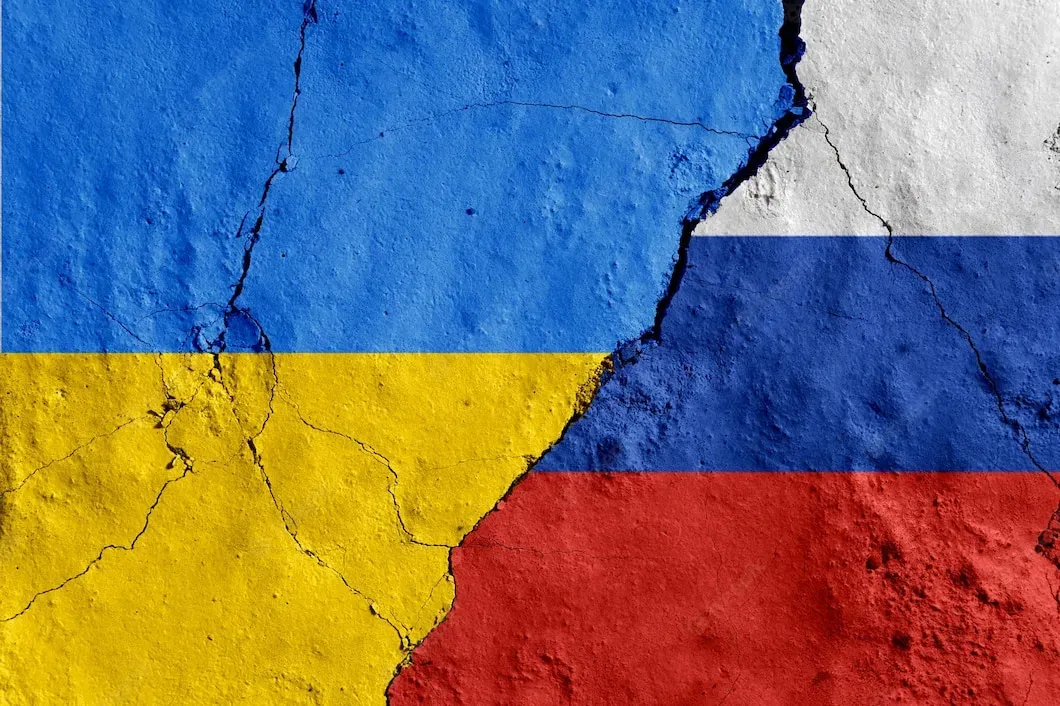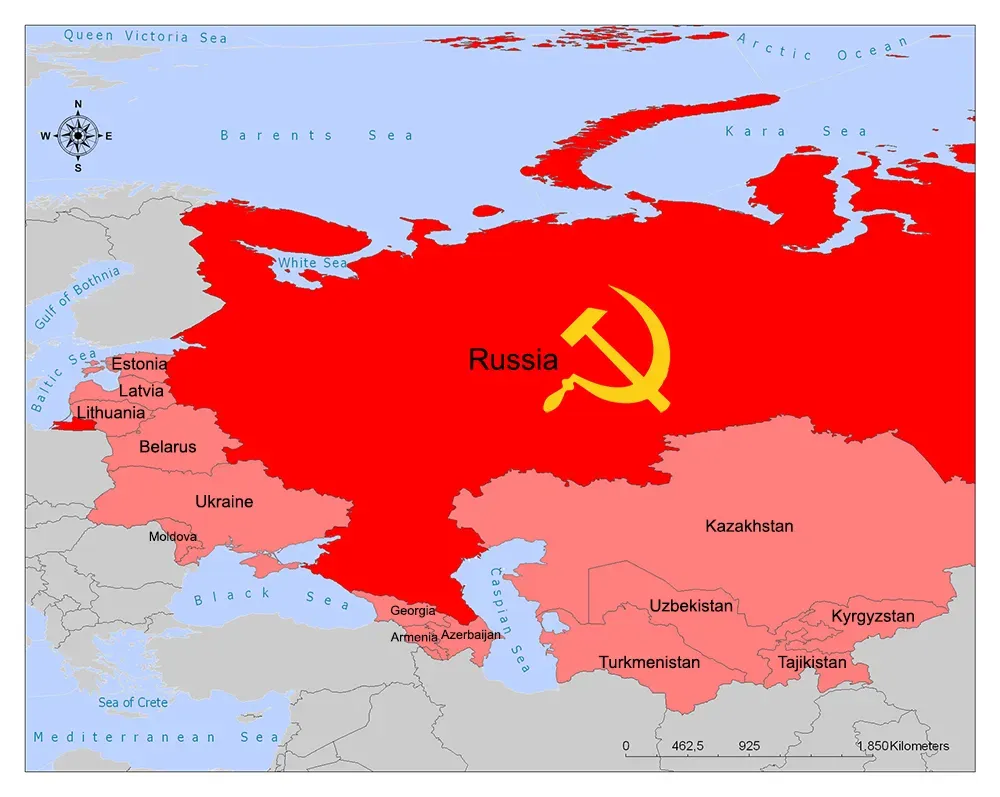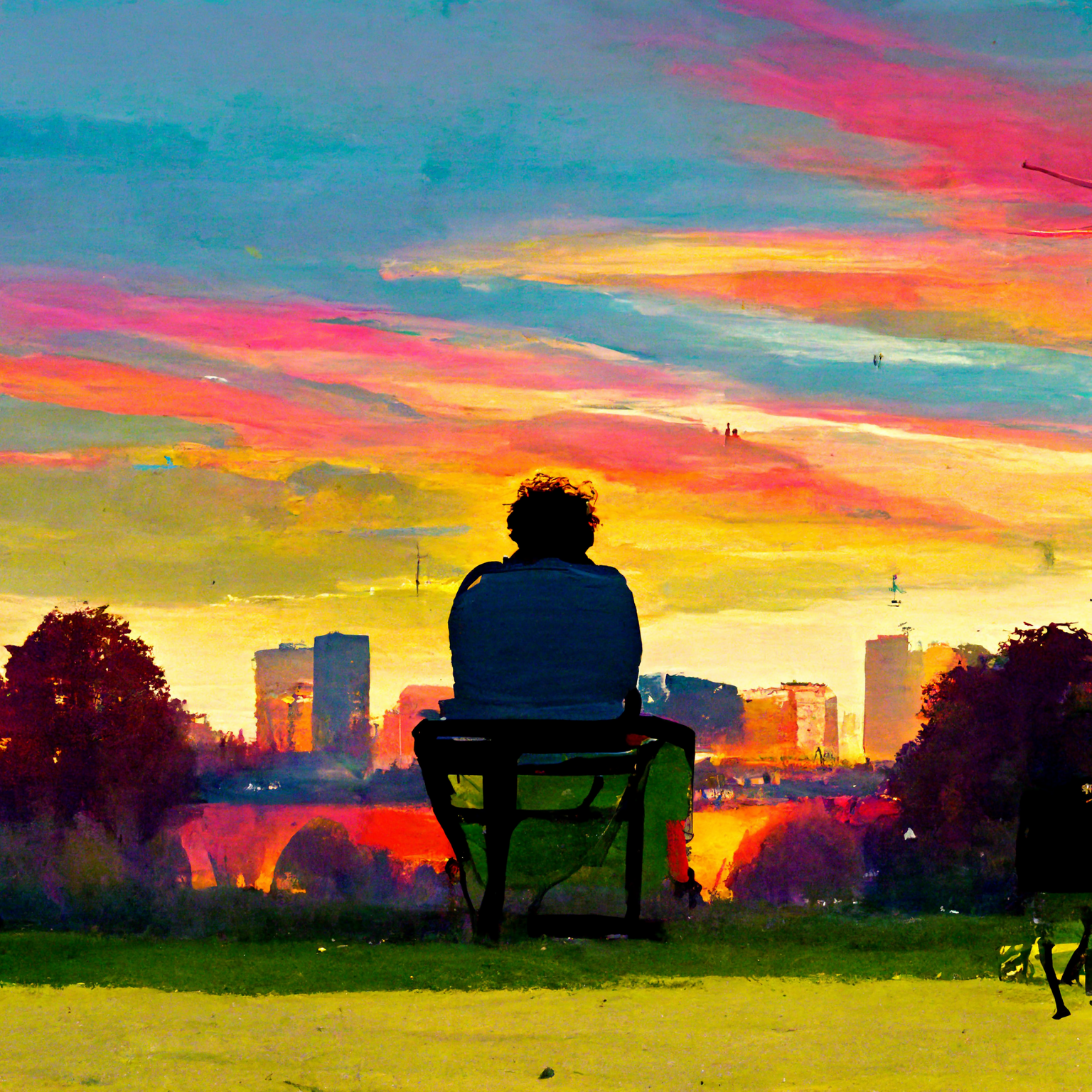The Russo-Ukrainian war in 3 minutes: the essential historical context from Russia's perspective
A short summary of the Russo-Ukraine war, with a focus on Russian history.

What is the history of Russia? How can we make sense of its invasion in Ukraine? Who is and how did we get to Putin?
Here's the essential (but highly imperfect) Russian historical context in a three minute read.
16th - 20th century: Czarism
Russia's history is distinct from that of Europe. Russia has its own identity, culture and values. It was ruled by Czar's (essentially an all powerful emperor/empress) from 1533 until 1917.
Czarist rule was traditionally top-down, autocratic, religious and all powerful. Indeed, Russia has a long history of strong leadership.
20th century: Communism
Czarism fell and Communism rose: Russia was the first place in the world to implement this system. A new Russian identity was born; the Soviet Union.
Communist ideals are about equality. Hence began an era of the government seizing land and wealth in an attempt to redistribute from the top down.
Indeed, its estimated that 91% of agricultural land was owned by the government by the 1930s. These policies caused great damage (1)
For example, they caused the Holodomor - where millions of Ukrainian people staved to death as a result of these ideological communist policies.
In the film Hot Fuzz the villagers maintain a "crime free" village by appealing to "the greater good". But the problem with the greater good is that it is infinite.
If we are making an equal world, how much killing are we willing to do in order to achieve this?
In the case of Hot Fuzz and communist Russia the answer is the same: we are willing to kill and keep on killing to protect our idea, no matter the cost (2).
How many people died in communist Russia as a result of pursuing communist ideas? Somewhere between 40-60 million people.
But communist Russia didn't last.
The fall of the Soviet Union
The Soviet Union collapsed. It included 14 countries other than Russia and was the third most populace country in the world.

Russia were the central glue holding a diverse set of country and peoples together, the economy, the arts, the media, the history taught in schools: all state controlled.
The Soviet Union had a history of discontent. 1956 saw the Hungarian uprising and 1968 the Prague Spring.
Both rebellions were met with Russian tanks, sending simple the message: if rebel, then bullets.
Broadly, the Soviet Union collapsed because of these three reasons:
1) economic inefficiencies - it was run as a centralised economy, which have proven again and again to produce worse outcomes than market, decentralised economies (4)
2) people demanding internal change- people had no choice over food, work, music, clothes, technology, speech, books, or travel; they had the basics but life was drab (5)
3) Soviet leadership implement change - Mikhail Gorbachev ruled Russia from 1985 to 1991; his policies of perestroika (restructuring) and glasnost (openness) helped to bring down the Soviet Union (6).
A new Russia: Putin's Russia
The Soviet Union collapsed. Then what?
Economic collapse happened (5). Despite the deaths, the efficiency and the lack of choice, the Soviet Union in general offered stability to people.
When it collapsed, people suffered.
Radical changes or disruptions in politics and economics leads to a period of instability, which creates a vacuum, which is then filled by a strongman.
Putin is that strongman. He's a former officer of the secret police. He is nostalgic for the old Russia. The Czarist Russia.
He's been in charge for a total of 16 years and came to power at a time when Russia and Russian people were dissatisfied with the instability that the fall of the Union caused.
Today he has direct control over all the media: T.V., newspapers, speech itself (6).
He published an essay on his views about Ukraine last year and kept referring to the idea that Russians and Ukrainians are one people. It's a terrifying read, because it comes across as reasonable.
Putin cites the fact that Russia and Ukraine share a historic idendity: modern day Kiev really is the birthplace of Russian and Ukrainian culture.
And yet he concludes:
"And what Ukraine will be – it is up to its citizens to decide."
Ukraine's voice
So what do Ukraine want?
Two pieces of empirical evidence demonstrate Ukrainian desires:
1) In December 1991 there was a vote for independence in Ukraine. More than 90% of Ukrainian's voted in favour of this.
2) A majority of Ukrainian refugees are not fleeing to Russia, but to Europe. The UN states as of 9 March: Europe has taken in 1,959,294 refugees from Ukraine, while Russia and Belarus have taken 97,863.
These "two pieces of evidence" are not enough to explain everything, but they are powerful. Perhaps Ukrainian's themselves do not share Putin's views.
A final word
Domestic violence is a good metaphor to use for the Russian President.
Putin is the lover who "respects" Ukraine, who affirms their history, who loves their culture and people, and yet is willing to invade, drop bombs, and wreak mass havoc.
Ultimately, the independent state of Ukraine may represent an existential threat to Putin and his idea of Russia, because if it can spread to Ukraine, then why not to Russia?
History can always tell the story of how we got to where we are today. It's not much, but it's something.
